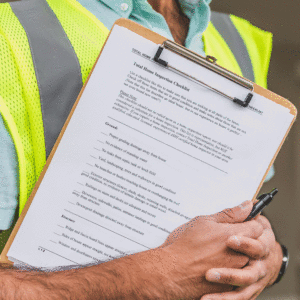
Health department inspections are an integral part of ensuring the safety and compliance of food establishments. These inspections play a crucial role in safeguarding the health of customers and upholding industry standards. In this blog post, we will explore the significance of health department inspections, shed light on what to expect during an inspection, and provide insights to help you prepare and excel in these assessments.
The Importance of Health Department Inspections:
Health department inspections are conducted to assess the compliance of food establishments with local health regulations and food safety standards. The primary goal is to identify potential risks, such as improper food handling, inadequate sanitation practices, or poor maintenance, that could lead to foodborne illnesses. These inspections serve as a critical means of protecting public health and ensuring that food establishments prioritize safety and hygiene.
What to Expect During a Health Department Inspection:
- Unannounced Inspections: Health department inspections are typically unannounced visits to maintain the integrity and accuracy of the assessment. This approach allows inspectors to observe daily operations and evaluate conditions as they normally are. Be prepared for inspections at any time, and ensure that your establishment maintains consistent compliance with food safety practices and regulations.
- Assessment of Key Areas: Inspectors will thoroughly evaluate various areas of your establishment, including food preparation areas, storage areas, employee facilities, restrooms, equipment, and overall cleanliness. They will focus on critical aspects such as proper temperature control, hand hygiene practices, prevention of cross-contamination, food storage, and pest control.
- Observation and Documentation: Inspectors will observe your operations, assess records, and document their findings. They may ask questions about your food safety protocols, employee training, and cleaning procedures. It is important to provide accurate and complete information and address any concerns or questions the inspector may have.
- Violations and Corrective Actions: During the inspection, any violations or non-compliance with health regulations will be identified and documented. These violations may range from minor infractions to more serious issues that pose immediate health risks. The inspector will provide you with a report detailing the violations found and may suggest corrective actions to rectify them.
Preparing for Health Department Inspections:
- Establish a Culture of Food Safety: Prioritize food safety in your establishment by implementing robust food safety protocols and cultivating a culture that emphasizes its importance. Train your staff on proper food handling, sanitation practices, and regulatory compliance. Regularly review and update your protocols to align with changing regulations and best practices.
- Conduct Self-Inspections: Perform regular self-inspections to identify and address any potential issues before an official health department inspection. This proactive approach helps you maintain compliance and minimize surprises during the actual inspection. Use checklists or guidelines provided by your local health department to ensure you cover all necessary areas.
- Maintain Accurate Records: Keep comprehensive records of your food safety practices, including temperature logs, cleaning schedules, employee training records, and pest control reports. These records demonstrate your commitment to maintaining a safe and sanitary environment and can support your compliance during health department inspections.
- Address Inspection Findings: If violations or non-compliance are identified during the inspection, take immediate action to address them. Correct any deficiencies promptly and thoroughly, following the recommendations provided by the inspector. Implement corrective measures, document the changes made, and maintain ongoing monitoring to ensure sustained compliance.
Understanding health department inspections is essential for food establishments striving to prioritize safety, compliance, and customer well-being. By recognizing the importance of these inspections, preparing diligently, and maintaining robust food safety practices, you can create an environment that upholds the highest standards of hygiene and regulatory compliance.
At SafeCuisine Solutions, we are committed to helping food establishments navigate the complexities of health department inspections and achieve excellence in food safety. Our team of experts can provide comprehensive consulting services tailored to your specific needs, empowering you to excel in health department assessments and ensure the well-being of your customers.
Stay tuned for more informative articles and resources on food safety as we continue our commitment to elevating culinary standards and helping you navigate the world of health department inspections with confidence.

